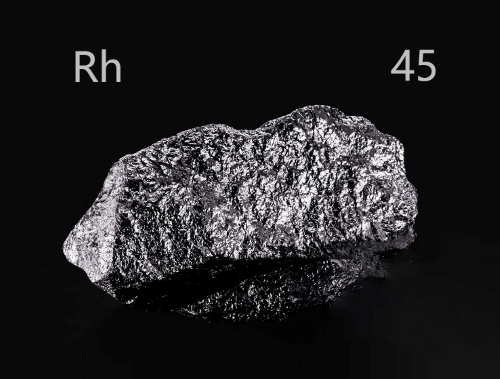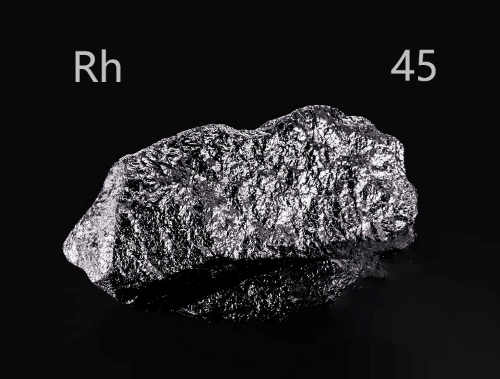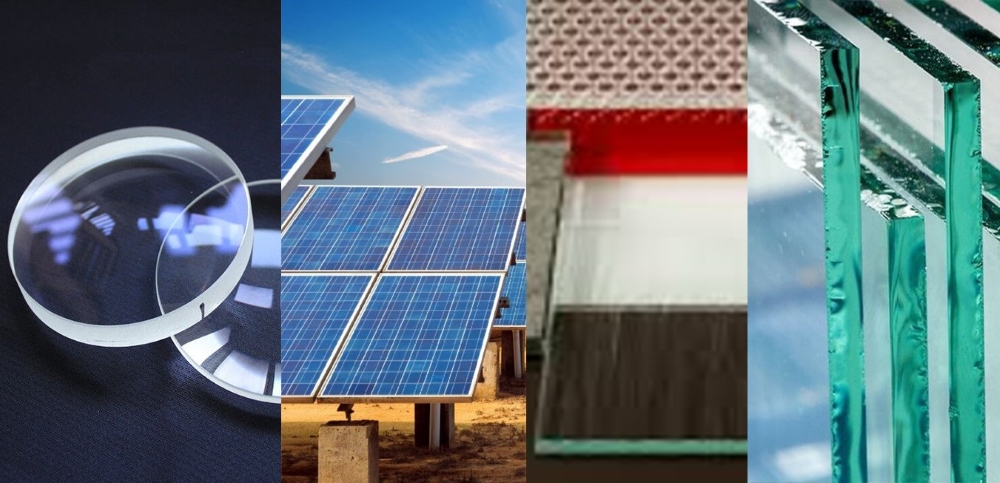The Role of Rhodium in Glass Manufacturing

Introduction
With exceptional resistance to corrosion, high-temperature stability, and chemical inertness, rhodium has become indispensable in the production of flat glass and specialty glass. From ensuring product quality to improving manufacturing efficiency, rhodium's contribution to glassmaking has transformed the industry.

Why Rhodium is Essential in Glass Manufacturing
Glass production involves working with molten glass at extremely high temperatures, often exceeding 1,500°C. Under these conditions, most materials deteriorate or interact chemically with the glass, compromising its purity and quality. Rhodium, often used in its alloy form with platinum, stands out for its ability to withstand these extreme environments.
- High-Temperature Stability
Rhodium maintains its structural integrity and resists deformation even at the high temperatures required for glassmaking. This property ensures that critical components of glass manufacturing equipment, such as crucibles and stirring rods, function reliably over extended periods.
- Corrosion Resistance
Molten glass is highly corrosive, posing a challenge for most materials. Rhodium’s exceptional resistance to chemical erosion prevents contamination, ensuring that the glass maintains its optical clarity and mechanical properties.
- Durability and Longevity
Components made from rhodium or rhodium-platinum alloys have a much longer lifespan compared to those made from other materials. This durability reduces maintenance costs and downtime, making it a cost-effective choice for manufacturers.

Applications of Rhodium in Glass Manufacturing
1. Flat Glass Production
Flat glass is widely used in architecture, automotive applications, and electronic displays. The manufacturing process requires precision to achieve the desired thickness and surface quality. Rhodium is crucial in the following areas:
- Glass Molding Equipment
Rhodium-platinum alloys are used in molding and shaping components, such as troughs and stirrers. These components handle molten glass, ensuring uniform distribution and reducing imperfections.
- Corrosion-Resistant Linings
The linings of furnaces and molds exposed to molten glass are often coated with rhodium to prevent erosion and extend their service life.
2. Specialty Glass Manufacturing
Specialty glass includes optical glass, glass fibers, and high-temperature glass used in scientific and industrial applications. Rhodium contributes to their production by maintaining high purity and precision:
- Optical Glass
Used in cameras, telescopes, and microscopes, optical glass requires exceptional clarity. Rhodium ensures the absence of impurities during the melting and forming process.
- Glass Fibers
In the production of glass fibers for insulation or reinforced plastics, rhodium is used in bushings and nozzles to withstand the continuous flow of molten glass.
- High-Temperature Resistant Glass
Specialty glasses used in aerospace and scientific research demand tight control over their composition and structure. Rhodium ensures these standards are met by maintaining the equipment's reliability and preventing contamination.
Future Prospects of Rhodium in Glass Manufacturing
As technological advancements drive the demand for innovative glass products, the role of rhodium in the industry is expected to grow. Emerging applications include:
- Flexible Glass
The rise of flexible and ultra-thin glass for use in foldable smartphones and wearable devices demands extreme precision in manufacturing. Rhodium’s ability to withstand high temperatures and resist contamination makes it ideal for this application.
- Solar Glass
Solar panels require glass that is highly transparent and durable. Rhodium’s role in producing defect-free glass is critical for the efficiency and longevity of solar energy systems.
- Smart Glass
Smart glass, which changes properties like opacity in response to electrical signals, is gaining popularity in architecture and automotive industries. Rhodium ensures the high-quality production required for such advanced materials.
|
Aspect |
Properties |
Flat Glass Production |
Specialty Glass Production |
|
|
High-Temperature Stability |
Resists deformation at >1,500°C. |
Glass Molding Equipment |
Optical Glass |
Flexible Glass |
|
Corrosion Resistance |
Prevents chemical erosion and contamination. |
Corrosion -Resistant Linings |
Glass Fiber |
Solar Glass |
|
Durability and Longevity |
Reduces maintenance costs and downtime; extends service life. |
High-Temperature Resistant Glass |
Smart Glass |
Environmental and Economic Impact
- Sustainability through Recycling
The high value of rhodium drives extensive recycling efforts in the glass industry. Used components, such as rhodium-platinum crucibles and linings, are carefully recovered and reprocessed. This reduces the need for mining, conserving natural resources while lowering costs for manufacturers.
- Energy Efficiency and Reduced Waste
Rhodium’s durability minimizes the need for frequent replacements, leading to fewer interruptions and higher production efficiency. Its resistance to wear also reduces material waste, contributing to a more sustainable manufacturing process.
- Cost Considerations
While rhodium is expensive due to its rarity, its long-term benefits outweigh the initial costs. Manufacturers achieve greater cost-effectiveness by leveraging rhodium’s durability, high performance, and recyclability.
Conclusion
Rhodium’s role in glass manufacturing is irreplaceable. Its unparalleled ability to resist high temperatures, corrosion, and wear ensures the production of high-quality flat and specialty glass. As demand for innovative glass products continues to rise, rhodium’s importance in the industry will only grow. With ongoing advancements in alloy development and recycling, this rare metal will remain at the forefront of glass manufacturing, enabling the creation of the next generation of glass technologies. For more metal products, please check Advanced Refractory Metals (ARM).
{{item.content}}
LEVE A REPLY
{{item.children[0].content}}
{{item.content}}






